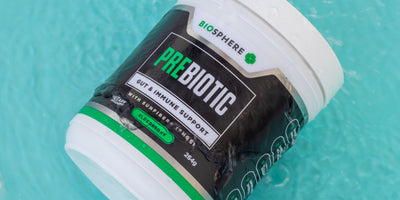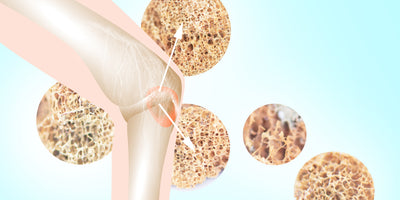
The Impact of Prebiotics on Heart Health: Lowering Cholesterol Naturally
Introduction
In the quest for improved heart health, cholesterol management remains a pivotal concern for many. Traditionally, medications such as statins have been the cornerstone of managing high cholesterol levels. However, emerging research suggests a more natural approach can be equally effective—enter prebiotics. Prebiotics, often overshadowed by their well-known counterparts, probiotics, play a crucial role in maintaining gut health and, as recent studies show, could significantly impact heart health. This article delves into how incorporating prebiotics into your diet could be a natural pathway to lowering cholesterol and enhancing overall heart health.
Understanding Prebiotics: Basics and Health Implications
Prebiotics are non-digestible fibres that serve as food for probiotics—the beneficial bacteria in your gut. Found in various foods like bananas, onions, garlic, and whole grains, prebiotics help maintain a healthy digestive system. Unlike probiotics, which are live organisms, prebiotics are unaffected by heat or stomach acid, ensuring they reach the colon intact where they exert their benefits. By fostering a healthy gut flora, prebiotics not only improve digestion but also enhance immune function and, intriguingly, cardiovascular health.
Prebiotics' role extends beyond simple gut health. They are instrumental in modulating the body's overall health, particularly in how they influence systemic inflammation and metabolic processes, including cholesterol regulation. This broader impact suggests that prebiotics might offer untapped benefits for managing conditions like hypercholesterolemia—excess cholesterol in the bloodstream—which is a major risk factor for heart disease.
The Gut-Heart Connection

The connection between gut health and heart health is a compelling aspect of modern medical research. A healthy gut microbiota influences the heart by interacting with body-wide inflammatory processes, a key player in cardiovascular diseases. Prebiotics enhance gut health, which in turn can lead to a reduction in systemic inflammation and a healthier lipid profile, including lowered levels of LDL cholesterol (the "bad" cholesterol) and potentially increased HDL (the "good" cholesterol).
This gut-heart connection is supported by studies that suggest that people with a healthier gut microbiome have a lower risk of heart attacks and strokes. The mechanism behind this involves the production of certain metabolites by gut bacteria, such as short-chain fatty acids, which have been shown to positively influence cholesterol metabolism and overall cardiovascular health.
How Prebiotics Help Lower Cholesterol
Prebiotics contribute to heart health primarily by interacting with the metabolism of bile acids. The liver uses cholesterol to produce bile acids, which are then modified by gut bacteria. Prebiotics promote the growth of beneficial bacteria that break down bile acids, thereby forcing the liver to use more cholesterol to produce new bile acids, ultimately reducing the cholesterol levels in the blood.
Moreover, prebiotics can directly influence cholesterol absorption in the gut. They can bind to cholesterol in the intestine, thus preventing its absorption and promoting its excretion. This dual action not only lowers serum cholesterol levels but also helps reduce the risk of developing atherosclerosis, a major cardiovascular disease caused by the buildup of cholesterol and other substances in artery walls.
Prebiotics vs. Statins: A Natural Alternative?
While statins are effective in lowering cholesterol, they come with potential side effects like muscle pain, digestive problems, and an increased risk of diabetes. This has led many to seek natural alternatives, such as dietary prebiotics, which offer a gentler approach to cholesterol management. Although prebiotics may not replace statins for everyone, they provide an excellent complement or alternative for individuals looking to manage their cholesterol naturally.
The advantage of using prebiotics over statins also lies in their broad health benefits. While statins specifically target cholesterol levels, prebiotics improve overall gut health, which in turn benefits other aspects of health, including immune function and possibly weight management. This holistic approach to health can be particularly appealing to those who are looking to not only manage their cholesterol but also improve their overall well-being.
Best Dietary Sources of Prebiotics for Heart Health
Incorporating prebiotics into your diet is straightforward, given their presence in many common foods. Foods rich in prebiotics include garlic, onions, leeks, asparagus, bananas, barley, oats, apples, and flaxseeds. These foods provide a delicious way to boost gut health and, by extension, heart health.
To optimise the heart health benefits of prebiotics, it's recommended to consume a variety of these foods regularly. This ensures a steady supply of different types of fibres and prebiotics, which support a diverse and robust gut microbiome. Regularly eating prebiotic-rich foods can lead to more significant improvements in cholesterol levels and other cardiovascular risk factors.
Enhancing Heart Health Beyond Cholesterol Reduction
Prebiotics' benefits extend beyond merely lowering cholesterol; they also influence other factors critical to cardiovascular health. For instance, research indicates that prebiotics can help reduce blood pressure in hypertensive individuals. They also play a role in reducing systemic inflammation, a major risk factor for many forms of heart disease.
These broader cardiovascular benefits are likely mediated through improvements in gut health and the metabolic influence of a balanced microbiome. By reducing inflammation and improving metabolic profiles, prebiotics help fortify the body against heart disease in a multi-faceted manner.
Personalised Prebiotic Intake for Optimal Benefits
While the benefits of prebiotics are vast, personal dietary needs can vary greatly depending on individual health conditions, dietary restrictions, and nutritional goals. Tailoring your prebiotic intake to fit your specific needs can help maximise the cardiovascular benefits while minimising potential discomforts such as bloating or gas, which can occur with high fibre intake.
It's advisable to start slowly with prebiotics and gradually increase intake to allow the gut microbiome to adjust. Additionally, consulting with a healthcare provider or a dietitian can provide personalised guidance tailored to individual health conditions, ensuring the dietary modifications are both safe and effective.
Summary
- Prebiotics Defined: Non-digestible fibres that fuel beneficial gut bacteria, found in foods like bananas, onions, and whole grains.
- Gut-Heart Connection: A healthy gut microbiome can influence heart health by reducing systemic inflammation and improving cholesterol levels.
- Mechanisms of Cholesterol Reduction: Prebiotics can lower cholesterol by altering bile acid metabolism and reducing cholesterol absorption in the gut.
- Comparison with Statins: While statins are effective for cholesterol management, prebiotics offer a natural alternative with fewer side effects, benefiting overall gut health and cardiovascular function.
- Dietary Sources: Key prebiotic-rich foods include garlic, onions, asparagus, bananas, and oats, which should be incorporated regularly for heart health.
- Broader Cardiovascular Benefits: Beyond lowering cholesterol, prebiotics may help reduce blood pressure and systemic inflammation, further protecting against heart disease.
- Personalised Intake: Tailoring prebiotic intake based on individual dietary needs and health conditions can maximise benefits and minimise potential digestive discomfort.
Prebiotic Information
For everything you need to know about prebiotics and prebiotic supplements, check out our comprehensive information page here.
Prebiotic
Biosphere Nutrition’s Prebiotic Powder is a unique blend of Sunfiber® and Black Elderberry Extract, designed to nurture gut health and support the immune system. This easy-to-mix, great-tasting formula ensures optimal absorption and digestive comfort. To learn more about our Prebiotic, check out the product page here.







